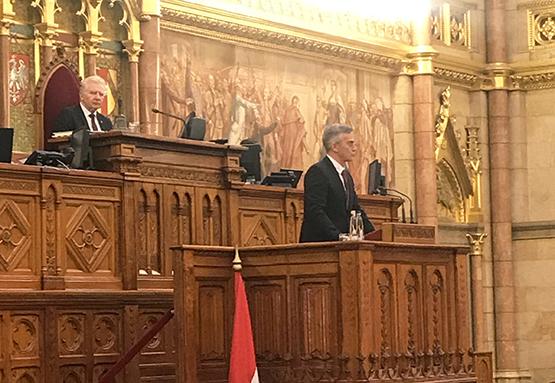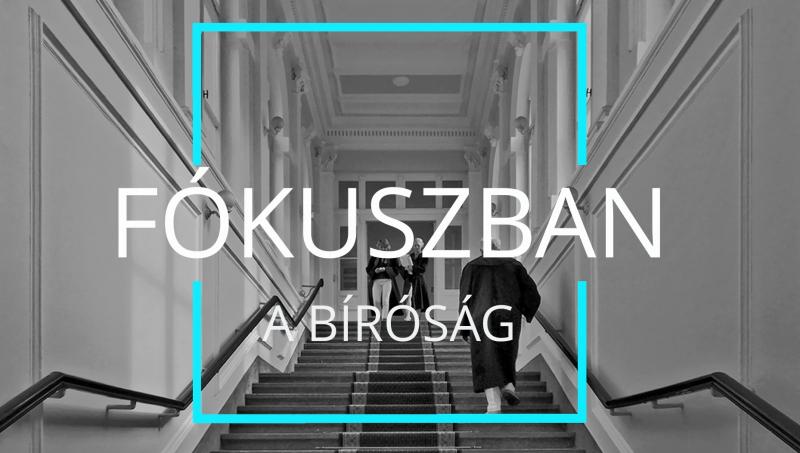News
Highlighted news
On 7 April 2020, János Áder, president of the republic has appointed Katalin Csillám and Mónika Erőss as vice-presidents of the National Office for the Judiciary (NOJ).
President of the Republic János Áder appointed Attila Harangozó as vice-president of the National Office for the Judiciary (NOJ) on 6 February 2020.
György Senyei emphasized that the quality of judgments should be prioritized over the quantitative approach, which requires a consistent separation of administrative and professional roles.
For clients
It is possible to start court proceedings electronically during the extraordinary suspension of judicial activities. Court offices are not available for personal administration, however it is possible to get information electronically and by telephone. It is suggested to manage the cases electronically, however it is still possible to send the submissions by regular mail or to put them in post boxes at the entrance of the courts.
The electronic administration portal now provides direct access to the E-company insight interface, in which public company documents can be searched and viewed based on the company registration number.
We would like to inform our clients that electronic administration is suggested for the registration procedure of non-governmental organisations and other associations in relation to the prevention of the COVID-19 epidemic.
About the courts
President of the Constitutional Court, dr. Tamás Sulyok took measures to maintain the functioning of the Constitutional Court (CC). The purpose of the measures is to enable the boards to meet and to take decisions during the coronavirus outbreak, while maintaining the health of CC judges and court staff.
The Supreme Court of Hungary (Curia) keeps performing its judicial tasks laid down in the Constitution and other Acts at a high professional level during the epidemiological state of danger as well.
At the meeting, György Senyei emphasized that the Czech Republic and Hungary are linked not only by their geographical proximity and common history, but also by the Roman and Continental legal roots of the two legal systems, as well as the simultaneous change of regime and accession to the European Union.
Magazine
The International Conference on Courts and Communication was organized for the seventh time this year on 10-11 October by the National Office for the Judiciary, and attracted around 80 guests from 19 countries.
This year the annual two-week-long, short-term program by the European Judicial Training Network was held from the 16th of September. The Hungarian judiciary welcomed foreign judges from all around Europe. This year there were 12 participants from Germany, Spain, Italy, Portugal, Finland, France, Poland and Estonia. The programs took place in Budapest on the first week, and then in Debrecen and Győr on the second week.
A Werbőczy Mundus scholar will spend his internship at the European Court of Human Rights (ECHR) in Strasbourg for the first time in history. Starting in September a Hungarian lawyer will spend several months at the Strasbourg-based European institution along with his fellows working at the Academy of European Law (ERA) in Trier and at the Court of Justice of the European Union (CJEU) in Luxembourg.







